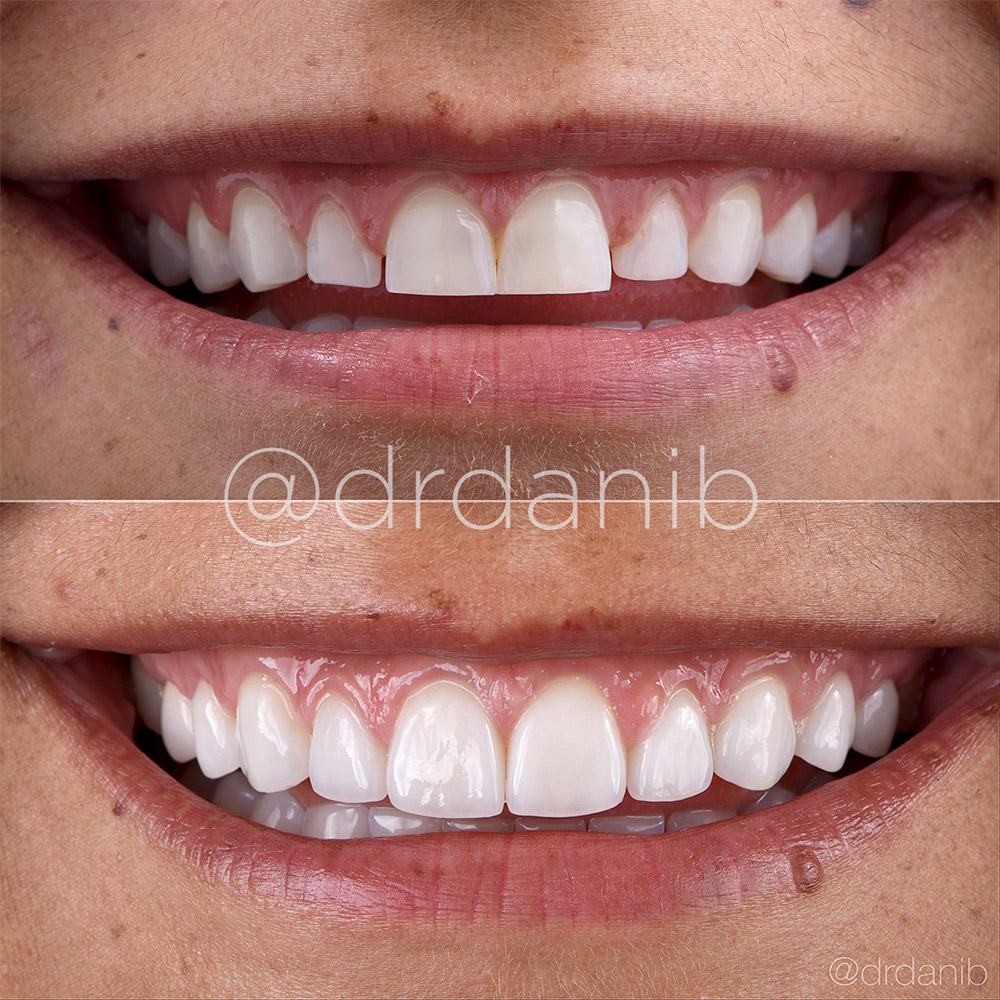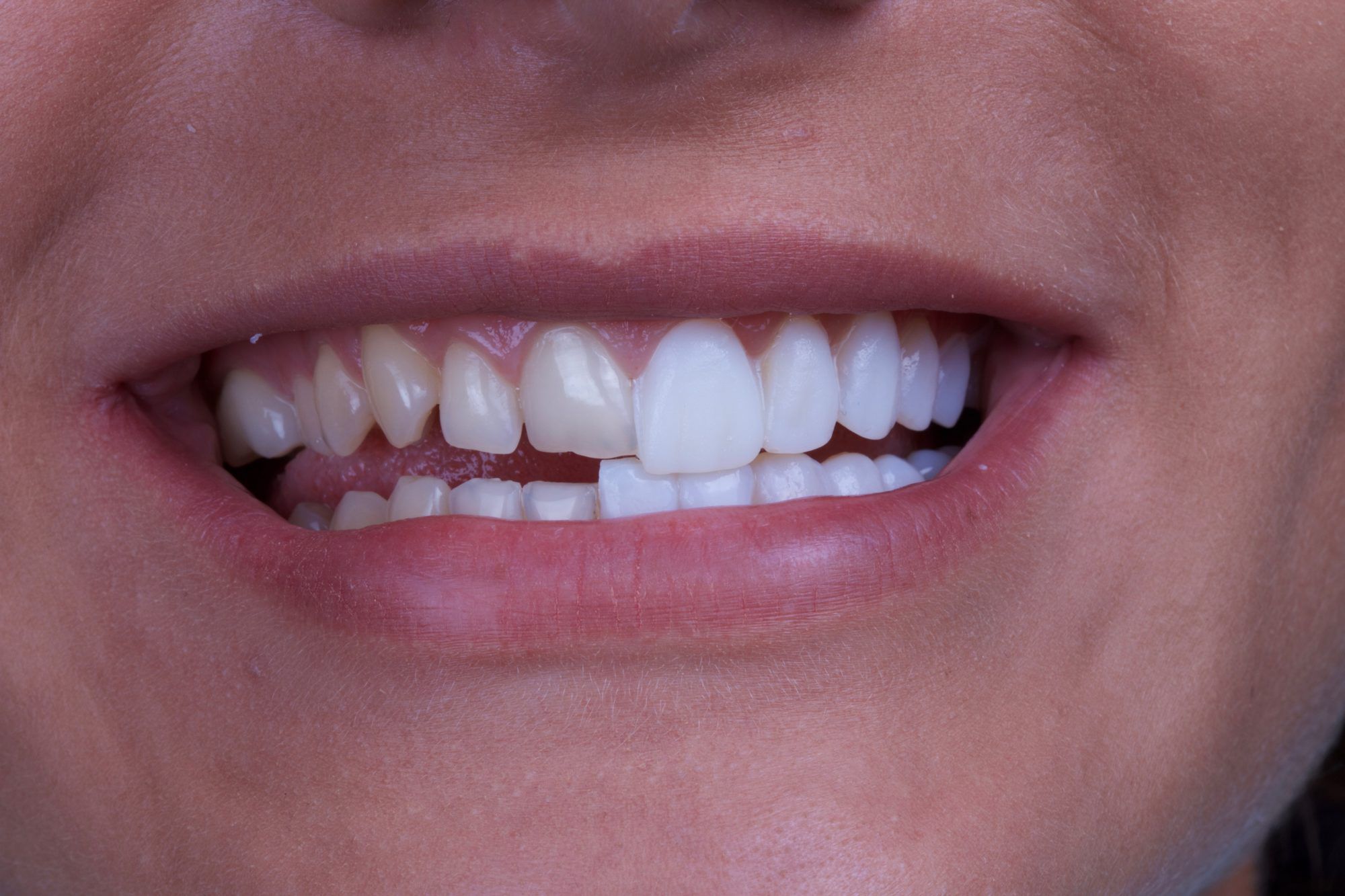Porcelain Veneers Dentist Tips for Achieving a Natural Look
Wiki Article
The Full Summary of Veneers: Kinds, Uses, and Their Effect on Your Smile
Veneers work as a prominent service for people seeking to enhance their oral looks. These custom-crafted shells can successfully mask blemishes such as staining and gaps. With two key types offered, porcelain and composite material, each offers distinct advantages and constraints. The impact of veneers expands past plain look, influencing self-worth and social communications. Comprehending their types and benefits is crucial. What might this suggest for one's general top quality of life?Recognizing Veneers: What They Are and Exactly how They Work
Veneers are thin shells, generally made from porcelain or composite resin, that are custom-crafted to fit over the front surface of teeth. They serve both practical and aesthetic functions, supplying a remedy for numerous oral blemishes such as discoloration, spaces, and small imbalances. By sticking to the tooth enamel, veneers produce an all-natural look while boosting the form and shade of the teeth.The procedure normally includes a preliminary examination, where a dental professional analyzes the patient's needs and discusses desired outcomes - What Are Veneers. Following this, a minimal quantity of enamel might be eliminated to accommodate the veneer. Impacts of the teeth are then taken to ensure an exact fit. As soon as fabricated, the veneers are bound securely to the teeth making use of an unique oral adhesive. This treatment not only boosts the smile's look but likewise helps protect the underlying teeth from additional damage, making veneers a popular selection for numerous seeking a smile makeover
Kinds of Veneers: Porcelain vs. Composite Resin
The difference between porcelain and composite material veneers depends on their material composition and attributes. Each type supplies differing degrees of resilience, price, and durability, affecting patients' selections based on their specific requirements. Comprehending these distinctions is vital for making an informed decision concerning oral improvements.Product Distinctions Discussed
While both porcelain and composite material veneers offer the very same cosmetic function, they vary greatly in material buildings, longevity, and aesthetic end results. Porcelain veneers are crafted from a ceramic product that simulates the all-natural transparency of teeth, supplying a realistic look. Their smooth surface is immune to discoloration, making them an appealing option for those seeking a durable visual. On the other hand, composite resin veneers are made from a tooth-colored plastic product, using convenience and ease of application. Nonetheless, they may not accomplish the same level of illumination or translucency as porcelain. Furthermore, composite veneers can be extra easily shaped and repaired, making them a more flexible alternative in particular oral circumstances. Each kind offers unique benefits customized to specific preferences.Long life and Toughness
Long life and toughness are substantial variables when contrasting porcelain and composite resin veneers. Porcelain veneers are known for their toughness, frequently lasting 10 to 15 years with proper treatment. Their durability versus damaging and tarnishing makes them a favored selection for people seeking long-term outcomes. In comparison, composite material veneers usually have a shorter lifespan, balancing 5 to 7 years. While they can be repaired more conveniently if damaged, they are more at risk to use and discoloration over time. The selection between these products commonly depends on the person's way of life, visual objectives, and upkeep preferences. Inevitably, comprehending the differences in long life and sturdiness can direct patients in picking the veneer type that ideal suits their demands.Cost Contrast Insights
When selecting in between porcelain and composite material veneers, price is an important factor to consider. Porcelain veneers usually range from $800 to $2,500 per tooth, mirroring their sturdiness, aesthetic allure, and resistance to discoloration. These veneers require a more considerable treatment and specialized laboratory work, adding to their higher rate tag. In contrast, composite resin veneers are generally a lot more budget friendly, setting you back between $250 and $1,500 per tooth. They can be applied in a single go to, which decreases labor costs. However, composite veneers might require much more frequent substitutes, possibly raising long-term expenditures. Ultimately, the choice in between porcelain and composite material veneers depends on private budgets and wanted outcomes, stabilizing preliminary expenses versus long life and visual outcomes.The Advantages of Finding Veneers for Your Smile
Picking veneers offers substantial advantages for those looking for a boosted smile. Their boosted aesthetic appeal can transform the appearance of teeth, while their stain-resistant properties assure a lasting brightness - Dental Veneers. This combination makes veneers a popular alternative for people looking to achieve a remarkable smileBoosted Visual Charm
When individuals seek to boost their smiles, veneers commonly arise as a popular remedy as a result of their transformative aesthetic benefits. These thin coverings, commonly made from porcelain or composite resin, can properly conceal imperfections such as chips, voids, and misalignment. By mimicking the all-natural appearance of teeth, veneers offer a seamless, radiant smile. Their personalized nature enables a customized approach, allowing individuals to select shades and forms that best match their face attributes. Furthermore, veneers can produce a consistent look, boosting overall facial balance. This visual enhancement not just improves confidence however can also favorably influence social communications and personal partnerships, making veneers a popular choice for those seeking to attain a brighter, a lot more appealing smile.Stain Resistance Perks
Veneers not only boost useful site aesthetic charm yet also use substantial stain resistance, making them an eye-catching option for individuals concerned concerning maintaining a brilliant smile. Made up of sturdy materials such as porcelain or composite resin, veneers are much less permeable than all-natural teeth, which helps protect against the absorption of stains from common perpetrators like coffee, tea, and merlot. This inherent discolor resistance enables people to enjoy their favored beverages without fretting concerning staining. What Are Veneers. Furthermore, the smooth surface area of veneers makes them much easier to clean, further improving their durability and maintaining their excellent appearance. Consequently, veneers offer a sensible option for those seeking both charm and performance in their oral careThe Refine of Obtaining Veneers: What to Expect

The procedure of getting veneers might appear challenging, comprehending the actions involved can alleviate worries. At first, an examination with a dental professional is needed to identify if veneers are the proper option for the individual's oral problems. During this appointment, the dental professional will certainly go over wanted end results and take perceptions of the teeth.
Next, a second consultation is arranged for tooth preparation, where a percentage of enamel is generally gotten rid of to suit the veneers. Short-term veneers might be placed while the custom ones are crafted in an oral lab, which generally takes a pair of weeks.
As soon as prepared, the dentist will certainly place the veneers, making certain appropriate fit and color before bonding them to the teeth using an unique adhesive. After final changes, the dental professional will supply guidance on treatment. Comprehending these steps can assist patients feel more comfortable and educated throughout the veneer procedure.
Maintenance and Take Care Of Your Veneers
Keeping veneers needs consistent care to ensure their durability and look. Appropriate oral hygiene is crucial; brushing twice daily with a non-abrasive tooth paste and flossing routinely help prevent plaque build-up around the veneers. Additionally, routine dental exams are essential for keeping an eye Visit Website on the problem of the veneers and resolving any possible problems at an early stage.Clients must avoid tough foods and extreme pressure when biting to stop damage. It's also advisable to restrict usage of discoloring substances, such as coffee, tea, and merlot, as these can influence the veneers' color over time.

Transforming Your Smile: Real-Life Influence of Veneers
A glowing smile can considerably improve one's self-confidence and overall look. For many people, veneers act as a transformative remedy, efficiently attending to various dental concerns such as staining, spaces, and misalignment. These thin shells, customized to fit over the front of the teeth, can create a harmonious and aesthetically pleasing smile.Real-life cases illustrate the extensive influence veneers can have. Individuals typically report an instant increase in self-esteem and social communications following their treatment. The newfound confidence can result in even more opportunities in individual and expert life, as individuals feel more likely to engage and reveal themselves.
Furthermore, the emotional advantages prolong past plain look; lots of experience improved psychological wellness as they welcome their smiles. Veneers not just enhance physical features however additionally contribute greatly to general top quality of life, highlighting their value in cosmetic dentistry.
Frequently Asked Concerns
The Length Of Time Do Veneers Typically Last Before Needing Substitute?
Veneers normally last in between 10 to 15 years prior to calling for substitute. Factors such as oral hygiene, oral habits, and the kind of product made use of can affect their long life and overall sturdiness. Routine dental exams are a good idea.Can Veneers Be Removed, and if So, How?
Yes, veneers can be eliminated. A dental practitioner generally makes use of specialized devices to very carefully detach them from the teeth, making sure minimal damages to the underlying enamel, usually followed by essential modifications or remediations for suitable visual appeals.Are Veneers Suitable for Every person's Dental Condition?

Will Getting Veneers Pain or Require Anesthesia?
Getting veneers generally includes very little discomfort, and numerous people get regional anesthetic to assure a pain-free experience. Level of sensitivity might take place temporarily later, however the majority of discover the procedure tolerable and are satisfied with the outcomes.Just How Do Veneers Affect Tooth Sensitivity After Placement?
Veneers can momentarily boost tooth sensitivity as a result of the removal of enamel and the bonding procedure. Many individuals experience a reduction in level of sensitivity gradually as the teeth get used to the new veneers.Veneers are slim coverings, normally made from porcelain or composite material, that are custom-crafted to fit over the front surface of teeth. Porcelain veneers are crafted from a ceramic material that resembles the all-natural translucence of teeth, offering a natural look. Porcelain veneers usually range from $800 to $2,500 per tooth, mirroring their longevity, aesthetic allure, and resistance to discoloration. In comparison, composite material veneers are generally extra budget-friendly, setting you back in between $250 and $1,500 per tooth. Full Report Made up of sturdy products such as porcelain or composite resin, veneers are much less permeable than natural teeth, which aids avoid the absorption of spots from typical wrongdoers like coffee, tea, and red wine.
Report this wiki page